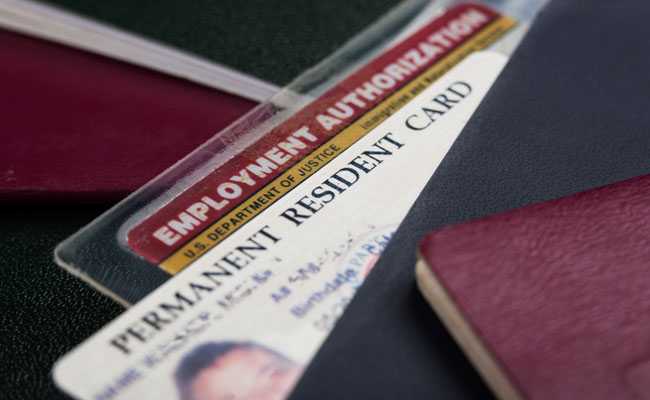

Three Influential U.S. Congress Members, including Indian-Americans Raja Krishnamoorthi and Pramila Jayapal, Introduce Bipartisan Legislation to Address Green Card Backlog and Eliminate Country-Based Discrimination in Employment-Based Visas
In a significant bipartisan move, three U.S. lawmakers, including Indian-Americans Raja Krishnamoorthi and Pramila Jayapal, have presented a legislative proposal in the U.S. House of Representatives aimed at reducing the green card backlog and putting an end to country-based discrimination for employment-based visas. Congressman Rich McCormick joined the two Indian-American legislators in introducing the bill, known as HR 6542, the Immigration Visa Efficiency and Security Act of 2023.
The proposed legislation, if passed and signed into law, is anticipated to benefit thousands of Indian-Americans currently facing prolonged waits for green cards or permanent residency. The bill aims to enhance the U.S. economy and global competitiveness by allowing American employers to prioritize immigrant hires based on merit rather than birthplace, thereby reducing the green card backlog.
Key provisions of HR 6542 include the phased elimination of the existing seven per cent per-country limit on employment-based immigrant visas. Simultaneously, the bill proposes an increase in the seven per cent per-country limit on family-sponsored visas to 15 per cent. This shift is designed to foster a more equitable and efficient immigration system.
Congressman Raja Krishnamoorthi emphasized the importance of ending country-based discrimination in employment-based immigrant visas to reduce visa backlogs while strengthening the economy. The proposed legislation addresses the current system’s shortcomings, where visas are allocated based on the immigrant’s country of birth rather than merit or skills.
The employment-based visa system, which grants permanent residence to individuals contributing to U.S. economic growth, is a key focus of the bill. The proposed phased-in system, influenced by the bipartisan EAGLE Act, is expected to alleviate the backlog for those facing prolonged waits.
Similar to the Fairness for High-Skilled Immigrants Act, the bill envisages the gradual elimination of the seven per cent per-country cap for employment-based immigrant visas. Additionally, it raises the seven per cent per-country limit on family-sponsored visas to 15 per cent. The legislation includes a nine-year transition period to prevent the exclusion of any countries from receiving visas during the phased elimination of per-country caps.
In addition to addressing the green card backlog, the bill strengthens the H-1B temporary visa program and introduces an option for individuals in the immigrant visa backlog for two years to file a green card application, pending visa availability approval.